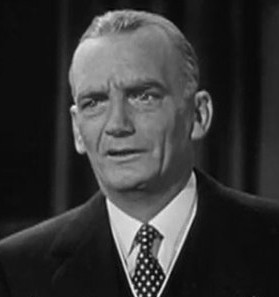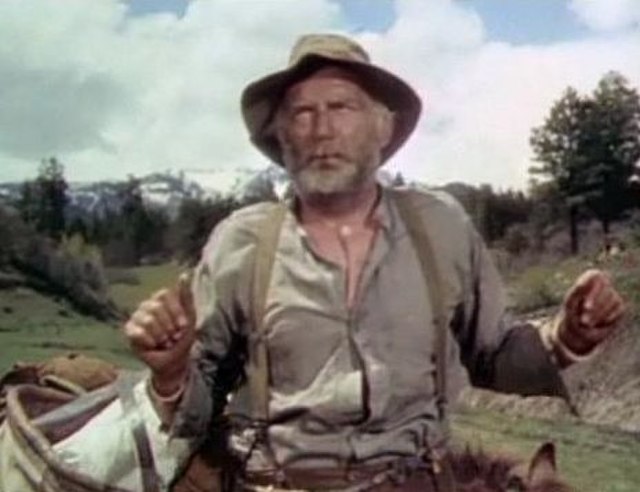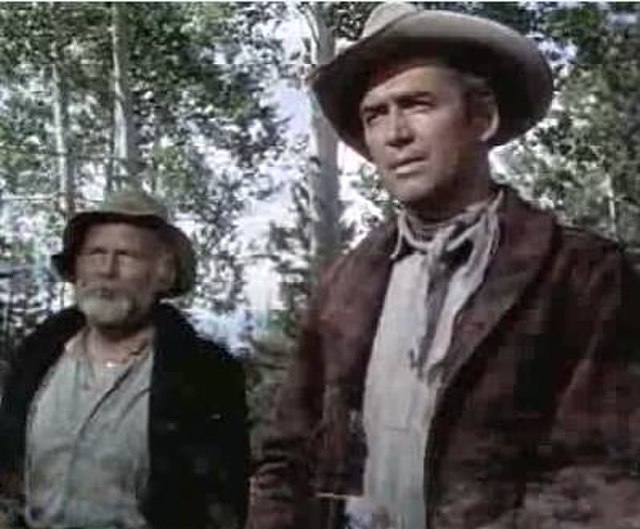Millard Mitchell (1903 – 1953)
Biography and Film Career
Millard Mitchell was a distinguished American character actor, known for his solid presence and distinctive, gravelly voice. Though he never achieved the marquee fame of Hollywood’s biggest stars, he brought depth and authenticity to every role he played, and his performances remain memorable in some of the most iconic films of mid-century cinema.
________________________________________
Early Life and Background
Millard Mitchell was born on August 14, 1903, in Havana, Cuba, to American parents. His father was reportedly in the hotel or export business, and the family had strong U.S. ties despite living abroad. His place of birth was somewhat unusual for a Hollywood actor of his time, and it's occasionally been misreported over the years. However, Mitchell was a U.S. citizen by birth, and he spent his formative years in the United States.
Little is publicly known about his early childhood or education, but Mitchell eventually found his calling in the performing arts. He began his acting career on the stage, which was a common entry point for many actors of his generation. The stage helped him develop a strong sense of timing and delivery, traits that would later serve him well in film.
________________________________________
Path Toward Success
Mitchell's earliest forays into screen acting occurred during the 1930s, when he took on small parts in various films. However, it wasn’t until the 1940s that he began to receive more substantive and recognizable roles. His rise to prominence coincided with the golden age of studio filmmaking, and he quickly found a niche in portraying authoritative, down-to-earth, and often kindly figures—military men, studio executives, and everyday professionals.
His gravitas and versatility made him a sought-after character actor, and he became known for elevating the material he was given with honest, grounded performances.
________________________________________
Career Highlights
Millard Mitchell's most celebrated roles came during the late 1940s and early 1950s. Some of his most important films include:
• Twelve O’Clock High (1949) – As Major General Pritchard, Mitchell held his own alongside Gregory Peck in this powerful wartime drama.
• Winchester ’73 (1950) – He played a key role opposite James Stewart in this classic Western directed by Anthony Mann.
• The Gunfighter (1950) – He gave a notable performance as the loyal marshal in this tense Western starring Gregory Peck.
• My Six Convicts (1952) – This role earned him a Golden Globe Award for Best Supporting Actor, a major recognition of his talents.
• Singin’ in the Rain (1952) – Perhaps his best-known role today, Mitchell played studio boss R.F. Simpson, bringing warmth and charm to a role that might have otherwise been flat. His scenes with Gene Kelly and Donald O’Connor helped ground the musical comedy in a believable Hollywood context.
• The Naked Spur (1953) – One of his final film roles, again with James Stewart, where he brought humanity to a grizzled frontier character.
Despite never being a leading man, Mitchell’s consistency, likability, and quiet strength made him a valued supporting player in Hollywood’s studio system.
________________________________________
Personal Life
Off-screen, Millard Mitchell led a relatively private life. He was married to actress Peggy Gould, and the two remained together until his death. They had one daughter. Unlike many of his peers, Mitchell didn’t seek the limelight and was known for being down-to-earth and dedicated to his craft.
He was respected by fellow actors and directors for his professionalism and was considered a reliable performer who brought integrity to his roles. There’s no indication of major scandals or public controversies in his personal life—a rarity in his era, especially for someone working steadily in the film industry.
Mitchell reportedly had a deep appreciation for theater and film as art forms, and while not a household name, he quietly contributed to some of Hollywood’s most enduring works. Outside of acting, he kept a low profile, with few known details about hobbies or public engagements.
________________________________________
Final Years and Death
In the early 1950s, at the height of his career, Millard Mitchell’s health began to decline. Tragically, he was diagnosed with lung cancer, a disease often associated with heavy smoking—common among men of his generation, particularly in Hollywood.
He died on October 13, 1953, in Santa Monica, California, at the age of 50. His death shocked colleagues and admirers, as he was still actively working in film and enjoying professional acclaim. He had only recently won a Golden Globe and appeared in several box office successes. His early death cut short what could have been an even longer and more influential career.
Millard Mitchell was laid to rest in Holy Cross Cemetery in Culver City, California, a burial ground for many Hollywood figures.
________________________________________
Legacy
Though his name may not be widely remembered today, Millard Mitchell’s legacy lives on through the classic films he helped bring to life. His understated but essential performances contributed greatly to some of the best-loved films of the 20th century. For cinephiles and fans of Golden Age Hollywood, Mitchell remains a symbol of the character actor’s art—steady, sincere, and unforgettable in his quiet way.
Height and Body Features
• Height: Approximately 6 feet (183 cm)
• Build: Medium to stocky
• Hair: Dark brown (later graying)
• Eyes: Brown
Distinguishing features:
• A square jawline and broad forehead, lending him an authoritative appearance
• A gravelly voice, often noted for its calm, commanding tone
• Frequently sported a mustache in his later roles
• Carried himself with a calm, confident posture, often cast as reliable authority figures
A Video Tribute to Millard Mitchell
Millard Mitchell: An Actor of Quiet Authority
Millard Mitchell was not a flashy performer. He didn't rely on theatrical flourishes or larger-than-life mannerisms to make an impression. Instead, he worked with a subtle, grounded approach that made him an ideal supporting player—one who could anchor a scene with authenticity and lend credibility to even the most extraordinary stories.
Naturalism and Believability
At the core of Mitchell’s acting style was a commitment to realism. Whether he was playing a military officer, a studio executive, or a grizzled frontier companion, he spoke and moved with the ease of someone who had actually lived the life of the character. His performances never felt like performances—they felt like people. He embodied that rare quality of seeming completely at home in the world of the film, no matter the genre.
His voice, slightly gravelly and measured, carried a quiet authority. He didn't bark or bellow like some of his contemporaries when playing power figures. Instead, his strength came from calm control, good timing, and understated delivery. He made you listen, not because he demanded it, but because he earned it.
A Master of Reaction
Mitchell was also a superb listener on screen, a quality sometimes underappreciated in acting. In ensemble scenes—like those in Singin' in the Rain or Twelve O’Clock High—he would often let others take the spotlight, only to quietly steal the moment with a raised eyebrow, a weary sigh, or a perfectly timed line. His characters often felt like the adults in the room—observant, practical, and usually a step ahead.
In comedies, like You're in the Navy Now or Singin' in the Rain, his humor was dry and unforced. In dramas and Westerns, he carried a weathered dignity, suggesting a man who had seen life’s ups and downs and made peace with them.
Strength in Stillness
Unlike more theatrical actors of the era, Mitchell had a stillness about him. He rarely gestured broadly or moved unnecessarily. He understood how to hold a scene with a glance, a shift in posture, or the weight of silence. This restraint made his characters feel thoughtful, competent, and often morally grounded—even when the world around them was chaotic.
In The Gunfighter, for instance, his role as a sympathetic marshal required both firmness and compassion. He walked the line between law enforcement and friendship with great skill—never melodramatic, always sincere.
The Actor as Anchor
Mitchell was the kind of actor who gave shape and weight to the world around the star. He made protagonists look better by grounding them. With James Stewart in Winchester '73 and The Naked Spur, he served as both foil and companion—never upstaging, but always essential. With Gregory Peck in The Gunfighter and Twelve O’Clock High, he added complexity to the power dynamics with calm authority and internal nuance.
He was particularly effective at playing characters who were competent but not glamorous, smart but not flashy—men who understood systems, responsibility, and the reality of tough decisions.
________________________________________
Legacy of Craftsmanship
Millard Mitchell's acting style was that of a craftsman, not a showman. He didn’t chase acclaim or dominate the screen, but his performances made films better, richer, and more believable. Directors valued his reliability and presence; audiences trusted his characters.
In a Hollywood often driven by charisma and star power, Mitchell stood out by doing the opposite: he disappeared into his roles. And in doing so, he left behind a quiet but enduring legacy of excellence in character acting.
Memorable Film Lines by Millard Mitchell
“Singin’ in the Rain” (1952)
Role: R.F. Simpson (studio head)
• "Don’t worry. We’re still making the artistic pictures."
A tongue-in-cheek comment on the shift from silent to sound films—Mitchell delivered it with just the right note of studio boss sarcasm.
• "Talking pictures! It’s just a fad."
An ironic line, given the historical context—spoken by Simpson early in the film, showing how even studio heads were skeptical about sound.
• "Cosmo, remind me to give you a raise."
Said to Donald O’Connor’s character, reflecting Simpson’s warm-hearted side in a moment of comic relief.
________________________________________
“My Six Convicts” (1952)
Role: James Connie (prison warden)
• "You can’t run a prison on muscle. You run it on understanding—and a good poker face."
This line showcases the humanity and intellect of his award-winning role, summing up his philosophy as a warden.
________________________________________
“The Gunfighter” (1950)
Role: Marshal Mark Strett
• "There’s always somebody faster, Ringo. Or younger."
A sobering, almost fatherly piece of wisdom delivered to Gregory Peck’s aging gunslinger—a defining line that underlines the film’s themes of time and inevitability.
________________________________________
“Twelve O’Clock High” (1949)
Role: Major General Pritchard
• "This is not a popularity contest, it’s a war."
A sharp line reflecting his character’s no-nonsense military approach—delivered in a moment that drives home the film’s tension and realism.
________________________________________
“Winchester ’73” (1950)
Role: High-Spade Frankie Wilson
• "I’ve seen him shoot. If he’s mad, get behind something."
A classic Western sidekick line—dry, practical, and delivered with a seasoned man’s humor.
Awards and Honors for Millard Mitchell
Golden Globe Award
• 1952: Golden Globe Award for Best Supporting Actor – Motion Picture
o Film: My Six Convicts (1952)
o Awarded by: Hollywood Foreign Press Association (HFPA)
o Details: This was Mitchell’s most prestigious accolade. In My Six Convicts, he played James Connie, a humane and insightful prison warden. The film was based on a memoir by a prison psychologist and Mitchell’s portrayal was widely praised for its empathy and realism.
o This award recognized him as one of the finest supporting actors of the early 1950s, and it helped cement his standing in Hollywood during his final active years.
________________________________________
Critical and Industry Recognition
While Mitchell did not receive other major competitive film awards (such as an Academy Award), he was well-regarded by directors, co-stars, and critics alike. His performances in key films brought widespread critical praise:
• Singin’ in the Rain (1952)
o Mitchell’s role as studio head R.F. Simpson was praised for bringing warmth and believability to a part that balanced satire with sincerity.
o Though not individually awarded, the film's legendary status has kept his performance in the public eye.
• Twelve O’Clock High (1949)
o While Gregory Peck received the spotlight, critics often noted Mitchell’s performance as General Pritchard as a powerful example of restrained military authority.
• Winchester ’73 (1950) and The Gunfighter (1950)
o These Westerns are now considered genre classics, and Mitchell’s performances are frequently cited in retrospectives on supporting actors in Western cinema.
________________________________________
Posthumous Recognition
• Film retrospectives and scholarly mentions have continued to include Millard Mitchell in discussions of great Hollywood character actors of the 1940s and 1950s.
• His work is occasionally highlighted by institutions such as the American Film Institute (AFI) in their retrospectives or genre studies, though he was not a recipient of AFI honors during his lifetime.
Millard Mitchell Movies
1931
• Secrets of a Secretary – A drama about a woman who becomes a secretary to support her family after her father's death. Mitchell appears in an uncredited role.
• My Sin – A melodrama involving a woman's attempt to escape her past. Mitchell plays a trooper (uncredited).
• A Lesson in Love – A romantic comedy; Mitchell's role is uncredited.
• The Cheat – A courtroom drama; Mitchell appears as a courtroom spectator (uncredited).
1936
• Dynamite Delaney – A crime drama featuring a truck driver who becomes entangled in criminal activities. Mitchell's role is uncredited.
1942
• Mr. and Mrs. North – A mystery film where a married couple solves crimes. Mitchell plays Detective Mullins.
• Grand Central Murder – A murder mystery set in Grand Central Station. Mitchell portrays Arthur Doolin.
• The Mayor of 44th Street – A musical drama about a nightclub owner; Mitchell plays Herman.
• Little Tokyo, U.S.A. – A wartime propaganda film; Mitchell appears as George 'Sleepy' Miles (uncredited).
• The Big Street – A drama about a busboy in love with a nightclub singer; Mitchell plays Gentleman George (uncredited).
• Get Hep to Love – A musical comedy; Mitchell plays McCarthy.
1943
• Dixie Dugan – A comedy about a showgirl's adventures; Mitchell appears as an accident victim (uncredited).
• Slightly Dangerous – A romantic comedy where a woman assumes a new identity; Mitchell plays Baldwin.
1946
• Swell Guy – A drama about a charming but irresponsible man; Mitchell portrays Steve.
1947
• Kiss of Death – A crime drama about an ex-convict turned informant; Mitchell plays Detective Shelby (uncredited).
• A Double Life – A psychological drama about an actor losing grip on reality; Mitchell plays Al Cooley.
1948
• A Foreign Affair – A romantic comedy set in post-war Berlin; Mitchell portrays Colonel Rufus J. Plummer.
1949
• Thieves' Highway – A film noir about a war veteran seeking revenge; Mitchell plays Ed Kinney.
• Everybody Does It – A comedy about a man pursuing a singing career; Mitchell portrays Mike Craig.
• Twelve O'Clock High – A war film focusing on the psychological effects of combat; Mitchell plays Major General Pritchard.
1950
• The Gunfighter – A Western about an aging gunfighter facing his past; Mitchell portrays Marshal Mark Strett.
• Winchester '73 – A Western revolving around a prized rifle; Mitchell plays High-Spade Frankie Wilson.
• Convicted – A crime drama about a man wrongfully imprisoned; Mitchell portrays Malloby.
• Mister 880 – A comedy-drama about a lovable counterfeiter; Mitchell plays 'Mac' McIntire.
1951
• You're in the Navy Now – A comedy about naval recruits during WWII; Mitchell portrays Chief George Larrabee.
• Strictly Dishonorable – A romantic comedy about a Southern woman and a New York opera singer; Mitchell plays Bill Dempsey.
• The Day the Earth Stood Still – A sci-fi film about an alien visitor; Mitchell appears as a general (uncredited).
1952
• My Six Convicts – A drama based on a psychologist's experiences in prison; Mitchell plays James Connie, earning a Golden Globe for Best Supporting Actor.
• Singin' in the Rain – A musical comedy about Hollywood's transition to sound films; Mitchell portrays studio head R.F. Simpson.
1953
• The Naked Spur – A Western about bounty hunters; Mitchell plays Jesse Tate.
• Here Come the Girls – A musical comedy about a chorus girl and a murder mystery; Mitchell portrays Albert Snodgrass.



